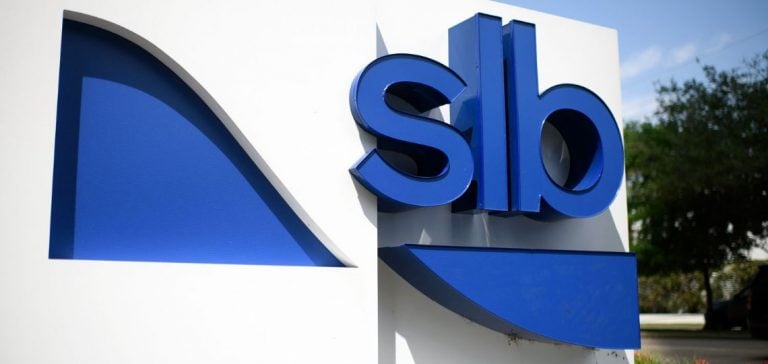SLB (formerly Schlumberger), the world’s largest oilfield services company, reported a 13% increase in its net income for the third quarter of 2024, marking a solid performance despite a complex market. However, the company also issued cautious outlooks for the fourth quarter, citing limited spending by international producers and weak oil prices as major concerns. This analysis explores SLB’s financial performance, its market outlook, and the broader implications of these developments for the oilfield services sector.
After a clear separation, the body of the article starts here.
SLB posted a net income of $1.27 billion in the third quarter of 2024, a 13% year-on-year increase. The company’s profit per share of $0.89 slightly exceeded analysts’ expectations of $0.88, according to data from the financial firm LSEG. However, total revenue for the quarter came in at $9.16 billion, falling short of the expected $9.25 billion. This revenue miss, despite the profit growth, reflects the complex dynamics SLB is navigating in the global energy sector.
SLB’s International Operations Performance
SLB’s international operations, which account for 81% of its business, were a key driver of the company’s third-quarter results. Revenue in international markets grew by 12% compared to the same period last year, boosted by increased sales in Saudi Arabia, the United Arab Emirates, Iraq, and Kuwait, as well as in North Africa. This growth helped offset weaker drilling activity in Mexico and Guyana, which have been affected by oil price volatility and changes in local exploration policies.
Slowing International Growth
However, the growth rate of SLB’s international business has slowed, marking its lowest year-on-year increase in a year. In contrast, the company had reported an 18% growth in the previous three quarters. This deceleration signals potential headwinds in the global energy market, particularly as oil prices remain subdued and geopolitical uncertainties continue to weigh on the industry.
Cautious Market Outlook
SLB’s CEO Olivier Le Peuch provided a cautious outlook for the remainder of 2024 during the company’s post-earnings conference call. Le Peuch noted that weak oil and gas prices have led to a more conservative approach to spending among many of the company’s customers, both internationally and in North America. This has resulted in lower discretionary spending on new projects, especially in the exploration and drilling sectors.
Situation in North America
In North America, SLB reported only a modest 3% sequential increase in revenue, driven primarily by higher activity in the U.S. Gulf of Mexico. This was partially offset by reduced drilling on U.S. land, where activity has remained sluggish. The North American market is expected to remain weak in the near term, with Le Peuch predicting that any increase in gas drilling rigs will likely be offset by declining order rates due to higher operating efficiency.
Optimistic International Prospects
Internationally, the outlook is more optimistic, particularly for natural gas projects in Asia, the Middle East, and the North Sea. These regions are expected to continue growing regardless of OPEC+ decisions to curb oil production. However, Le Peuch cautioned that overall international market spending is expected to rise only by low to mid-single-digit percentages in 2025, reflecting the broader industry’s cautious approach amid ongoing oil price volatility and geopolitical risks.
Strategic Moves and Cost Management
To navigate these challenges, SLB has implemented several strategic measures aimed at preserving its profitability and improving its operational efficiency. In the third quarter, the company launched a cost-cutting program, which included adjustments to resources in response to lower activity levels in North America and the centralization of some digital delivery services. These efforts have helped SLB maintain a resilient profit margin, with the company reiterating its expectation to deliver a full-year adjusted margin on earnings before interest, tax, depreciation, and amortization (EBITDA) at or above 25%.
Another significant move by SLB was the sale of its interests in the Palliser Block in Alberta, Canada, for approximately $430 million. This sale not only generates cash proceeds for the company but also helps reduce its well-abandonment liabilities, further strengthening its balance sheet.
Market Reactions and Broader Implications
Despite SLB’s solid third-quarter profit, the company’s stock fell by 3.6% to $42.38 following the release of its earnings report. The negative market reaction reflects investor concerns about the company’s muted revenue outlook for the fourth quarter and the broader challenges facing the oilfield services sector. The weaker-than-expected revenue growth has also dragged down the stocks of SLB’s rivals, highlighting the interconnectedness of the sector and the broader impact of oil price volatility on service providers.
SLB’s Resilience Amid Challenges
However, analysts have noted that SLB’s focus on profit margins has made its earnings more resilient in the face of industry headwinds. Peter McNally, an analyst at Third Bridge, emphasized that SLB’s cost-cutting measures and its ability to maintain a strong EBITDA margin are key factors that have helped the company navigate challenges such as customer consolidation, geopolitical uncertainty, and a softer oil market.
SLB’s third-quarter results demonstrate the company’s resilience amid challenging market conditions, but its cautious outlook for the fourth quarter underscores the broader uncertainties facing the oilfield services sector. While international markets, particularly natural gas projects in Asia and the Middle East, offer some growth opportunities, the overall industry remains constrained by weak oil prices and reduced discretionary spending by producers. SLB’s strategic focus on cost management and profitability will be critical as the company navigates these headwinds and seeks to maintain its leadership position in the global oilfield services market.






















